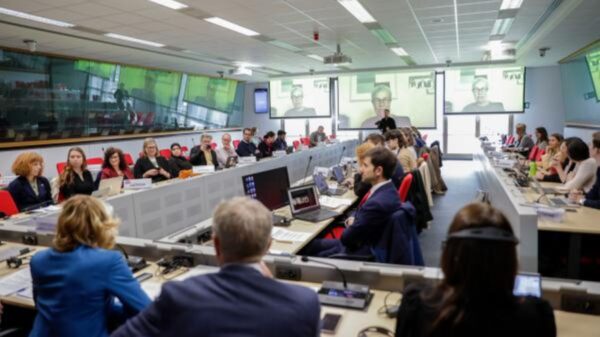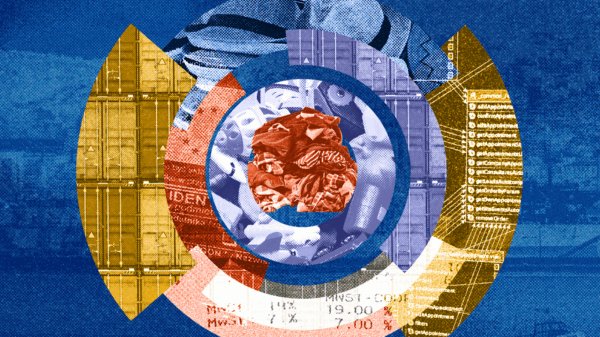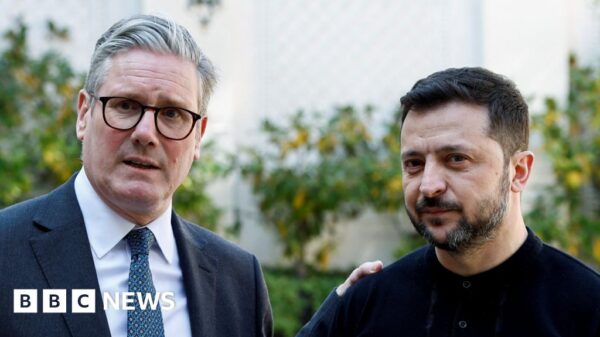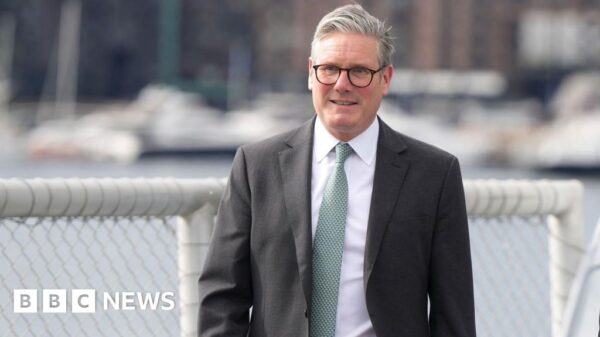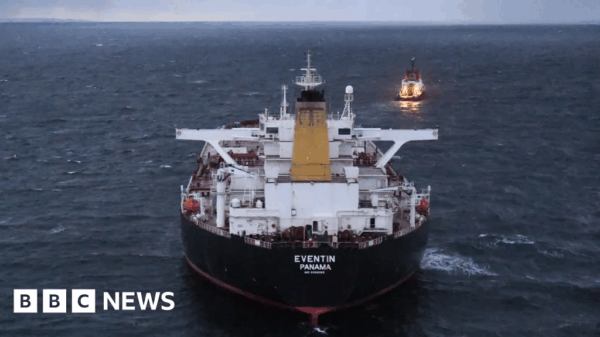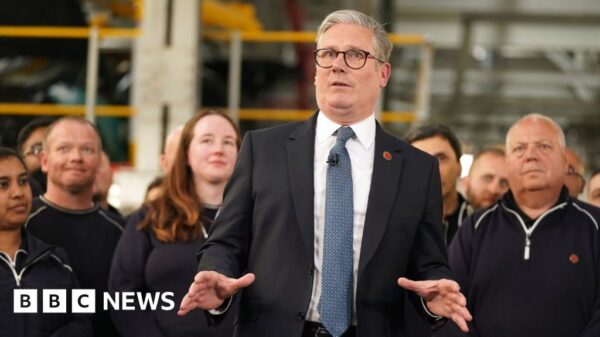BBC Business Editor
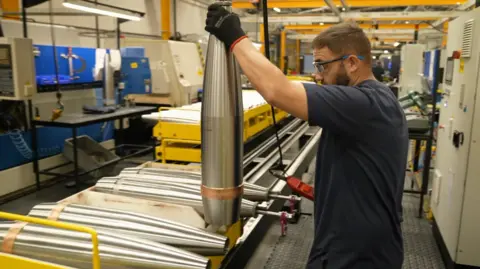 BBC
BBCThe UK government is willing to pay for UK companies to gain access to EU defence spending programmes worth hundreds of billions of pounds.
Defence Secretary John Healey told the BBC: “We are prepared to pay our fair share but we want to have a say in the programmes, while retaining UK intellectual property and export opportunities.”
He also promised that three-quarters of any money spent supporting Ukraine would be spent with UK companies.
EU Commission officials have indicated that the UK might be shut out of defence procurement programs unless they “pay to play”.
As the sights and sounds of the 80th anniversary of VE Day fade, thoughts across the world are turning to the potential conflicts of the future.
Russian aggression to the east, and a United States less keen on providing the west with a security blanket, have focused minds – and budgets – on Europe’s military needs.
In March of this year, the president of the European Commission, Ursula von der Leyen, announced plans to raise up to €800bn (£680bn) to bolster European defences and support Ukraine.
UK companies want to be on the frontline of this spending and defence giant BAE Systems has been adding extra staff shifts and transformational changes to their supply chains.


The BBC gained rare access to BAE Systems’ artillery factory in Washington Tyne and Wear, where it makes thousands of the 155 millimetre shells that have been in such high demand and short supply in Ukraine’s resistance to Russia’s invasion.
The plant now operates 24 hours a day and new supply chains, that source more of the explosives and propellants domestically, mean that the plant, along with its sister facility in South Wales, can increase production 16-fold over the next five years, according to BAE munitions chief Steve Cardew.
“I think it’s really clear there is going to be a long period of restocking and replenishment needed,” he says.
They are planning to increase production capacity for ammunition through a programme of work, building new machines in Washington and a new filling facility in south Wales.
“Fundamentally, it’s about more manufacturing capacity, and it’s also about building resilience in our supply chain, so explosives and propellants are sourced here in the UK, where we have more control over it, more sovereignty over that critical item in our ammunition production,” he says.
Across the whole company, BAE has added 15,000 staff over the past five years and invested an additional £1bn in the UK.

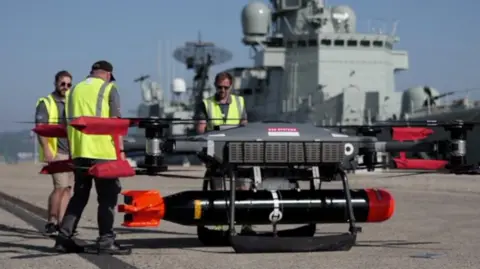
John Healey says the lessons learned in Ukraine will benefit the UK economy.
“We need to respond to an insecure world, but by doing so we will boost British business.
“I spend as much time talking to investors as I do to industry these days,” he says.
“What we lost sight of in this country is that if a country is under threat, its forces are only as strong as the industry that stands behind them.
“Defence already supports 400,000 jobs and 12,000 companies and we will measure the increase in defence spending by an increase in British jobs.”
The government has already laid out plans to increase defence spending from 2.3% to 2.5% of GDP from 2027.
That additional £6bn will be transferred from the international aid budget. But some defence experts say it is more likely that money will be largely spent on basic infrastructure than new weapons.
“The first challenge they have is there are more priorities than there is actually money to spend,” says Matthew Saville, the director of military sciences at the Royal United Service Institute.
“I think the first thing that they’ll be looking at is actually to fill out some of the gaps that there are in defence and improve the foundations,” he says.
This means more spending on training and recruitment, as well as large infrastructure and accommodation, before tanks, planes and aircraft have even been considered.
The other lesson from the Ukraine war is the changing nature of the battlefield.
Drones have become very effective and Ukraine is now the biggest manufacturer of drones in Europe. But BAE executives are quick to point out that through a series of acquisitions, it is now the second.
As Europe’s biggest defence contractor, BAE is well-placed to benefit as Europe rearms. BAE’s share price has tripled since Russia invaded Ukraine in 2022.
Wars are costly – in human and financial terms. UK government debt ballooned to 250% of GDP by the end of the Second World War.
But if there’s defence spending to be done, the UK government believes the benefits of being involved are worth paying for.


